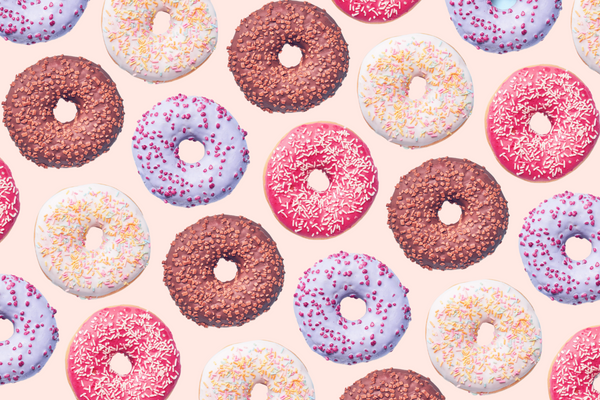acne natural remedies
Hormonal Acne Diet: Foods to Eat and Avoid
The Hormonal Acne Diet can help to bring the hormones back into balance and keep hormonal breakouts away. Here are the top, science-backed foods to eat and avoid to stop hormonal breakouts.

The Hormonal Acne Diet can help to bring the hormones back into balance and keep hormonal breakouts away. Here are the top, science-backed foods to eat and avoid to stop hormonal breakouts.
There are so many wonderful things about being a woman...but period breakouts aren't one of them.
Period breakouts are incredibly common, and hormonal acne affects both teenagers and adults alike. Unfortunately, we don't just "grow out of it."
However, with a few simple dietary tweaks, it's possible to skip the monthly breakouts and maintain clear skin all month long.
Check out the guidelines for a Hormonal Acne Diet below, to eat your way to clearer skin.

Hormonal Acne Diet: Foods to Eat & Avoid
Foods to Eat for Hormonal Acne
High-Fiber Foods
Eating a high-fiber diet, including beans, lentils, vegetables, fruit, and whole grains can help reduce hormonal acne by lowering excessive testosterone and androgen levels. (1, 2) In addition, fiber helps balance the gut microbiome and aids in regularity which is extremely important, because gut regularity plays a large role in hormone balance. Your body removes excess hormones through the stool, and when you're constipated, the excess hormones can get reabsorbed from the gut back into the bloodstream, contributing to hormonal imbalance. Ideally, you'd be eliminating fully, 1-3 times daily.
Omega-3 Rich Foods
Research shows that adequate omega-3 can help to reduce PMS symptoms, including acne. (4, 5) Some excellent sources include seafood like wild salmon, anchovies, and mackerel as well as seeds like flax, chia, and hemp.
Phytoestrogen-Rich Foods
Elevated testosterone levels are associated with acne. (6) Chickpeas, flaxseed, organic soy, and lentils are essential to a hormonal acne diet as they contain phytoestrogens. Phytoestrogens help balance testosterone as they stimulate the production of a substance called sex hormone-binding globulin (SHBG), which binds testosterone and prevents excess levels from circulating in the blood. (7)
Probiotics & Probiotic Rich Foods
Probiotics are beneficial bacteria that play a critical role in maintaining healthy digestion, clear skin, strong immunity, and good health overall.
Research shows acne patients may have less gut microbial diversity (8), may lack certain beneficial strains including lactobacillus and bifidobacteria (9) - which can lead to constipation (10) - and may have an impaired intestinal barrier. (11)
Probiotics can be found in fermented foods like kimchi, sauerkraut, tempeh, and traditionally fermented pickles. Eating fermented food daily is a healthy addition to the diet. In the event you don't like or have access to fermented foods, or it's just not practical to have them daily, a probiotic supplement can help.
Glow Biome is an advanced probiotic + prebiotic supplement specifically formulated for breakout-prone skin with clinically-validated lactobacillus and bifidobacterium strains.

Magnesium-Rich Foods
Magnesium is a critical nutrient for hormone balance, and stress - which we all seem to have in 2024 - is known to deplete magnesium levels in the body. Dark leafy greens are an excellent source of magnesium. Aim to consume at least 2-3 cups daily. Other good sources of magnesium include sunflower seeds, pumpkin seeds, almonds, cashews, dark chocolate, avocado, and beans.
Foods to Minimize for Hormonal Acne

High-Glycemic Foods
High-glycemic foods are typically anything white, such as sugar, white flour, white bread, white rice, baked goods, pasta, cereal, and pretzels. Eating high-glycemic foods can result in insulin spikes (12) which increases inflammation in the body and triggers the oil glands to produce more oil, increasing your risk for acne. (13)
Unhealthy Fats
Trans fats and excessive amounts of omega-6 (commonly found in refined vegetable oils, like corn, sunflower, safflower, soy, or grapeseed oil) may push the body into an inflammatory state and exacerbate acne. (14, 15)
Alcohol
Alcohol can put a damper on clear, glowing skin in a number of ways. But when it comes to hormonal acne, studies show alcohol consumption may increase testosterone levels in women, which is associated with an increased risk of acne. (16)